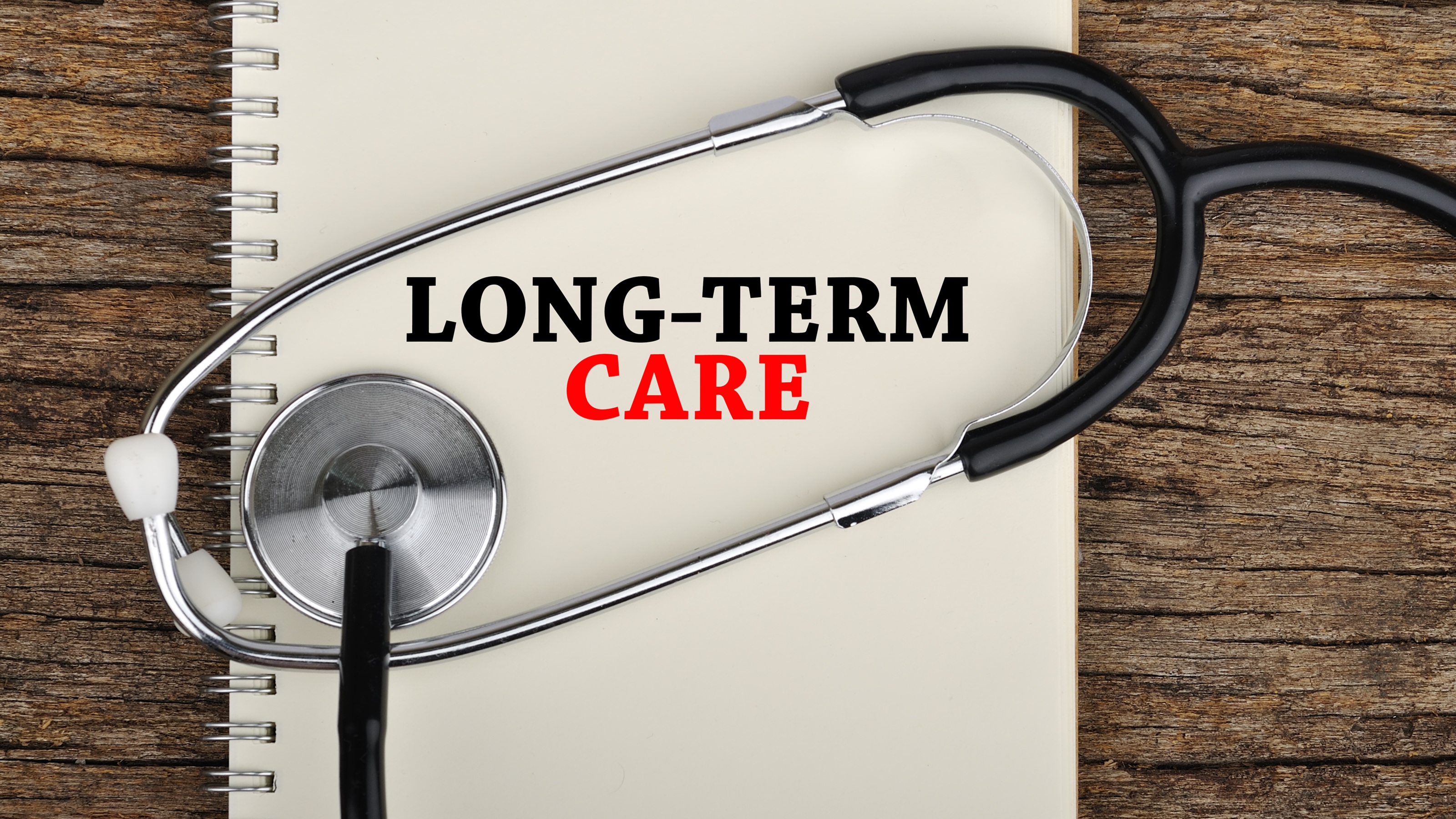I’m 62 and Worried About Social Security’s Future. Should I Take It Early?
A Social Security shortfall may be coming soon. We ask financial advisers for guidance.


Ellen B. Kennedy
Question: I’m 62 and worried about Social Security’s future, especially given that it is projected to pay me less than I expected in just a few years. Should I take it early?
Answer: This is a question that financial planners often get, especially when Social Security is making headlines as it has this year.
The Social Security Administration announced in February that it would cut its workforce — already at a 50-year low — by 7,000, raising concerns about a decrease in services and access to benefits.

Sign up for Kiplinger’s Free E-Newsletters
Profit and prosper with the best of expert advice on investing, taxes, retirement, personal finance and more - straight to your e-mail.
Profit and prosper with the best of expert advice - straight to your e-mail.
In June, the Social Security Trustees’ annual report projected that the trust fund that pays benefits to retirees and their survivors would be depleted in 2033, a year earlier than previously estimated. If Congress doesn’t shore up the fund by then, promised benefits would be cut by 23%, starting in 2025.
You won't get much help from the latest round of legislation. Although President Trump had suggested that the so-called One Big Beautiful Bill (OBBB) would eliminate taxes on Social Security benefits, that provision never made it into the final version, signed into law on July 4th. Instead, the OBBB offers an additional tax deduction for those over 65 who meet certain income limits. That deduction, however, only applies to 2025 through 2028. So, given that you are 62, you won't be able to claim that deduction until 2028, when you turn 65, and there is no guarantee that the deduction will be extended beyond 2028.
“It’s routine for clients to ask whether they should take benefits at 62 out of concern that Social Security’s finances are uncertain and future reductions might be implemented,” says Patrick Huey, a certified financial planner with Victory Independent Planning in Naples, Fla. “My response is clear: Unless a well-developed financial plan demonstrates otherwise, taking benefits early simply out of fear is rarely advisable.”
Social Security, with its cost-of-living adjustments, is an important source of income for most retirees, so when you start claiming benefits is key. The best time for you depends on many factors, such as your health, retirement savings and whether you are married or still working.
The case for delaying Social Security
Claiming Social Security retirement benefits at 62 — the earliest age possible —would permanently reduce your payout by 30% than if you waited until your full retirement age of 67. Additionally, if the trust fund is depleted within several years, the cut in benefits could apply to both future and current recipients, unless an exception is carved out for certain beneficiaries.
“So, if you take a reduced benefit early, you risk locking in both the early-claiming penalty and the across-the-board reduction,” Huey says.
Instead, many financial planners advise delaying benefits until at least full retirement age at 67 or, if possible, as late as age 70 to receive the maximum benefit possible. For every year you delay claiming beyond your full retirement age until age 70, your annual benefit gets an 8% boost. That’s something even the stock market can’t guarantee. Plus, any future cost-of-living adjustments will be based on a higher benefit, meaning a larger dollar amount added to your monthly check.
Also, delaying can also optimize the survivor benefit for your spouse, if you’re married.
Note, too, that if you’re still working and claim Social Security before your full retirement age, you will be subject to the earnings test. This temporarily reduces your benefit if your income exceeds certain limits. Once you reach full retirement age, Social Security will readjust your benefit upward to account for withheld benefits
The case for claiming early
If you have a serious health condition that has shortened your life expectancy, claiming at 62 makes sense, Huey says. Claiming early may also be necessary if your savings are insufficient and you need Social Security checks to help meet expenses.
Sometimes, though, claiming before your full retirement age can be a good strategy if it fits within an overall retirement plan, says Maggie Beach, a CFP and certified public accountant with NexJenn Financial Services in Naperville, Ill.
“When we talk about optimizing Social Security, I don’t like to say, ‘Let’s get the most that we can out of Social Security,’ ” Beach says. “I’m like, ‘Let’s use that to your best advantage to really optimize the overall plan.’ ”
For example, she has worked with married couples who face a huge tax bill resulting from required minimum distributions (RMDs). These mandatory withdrawals from their traditional IRAs kicked in at age 73. To avoid that, they opted to gradually convert the accounts to a Roth IRA, which has no RMDs and future withdrawals are tax-free. However, a conversion also triggers a tax bill, on the money transferred to the Roth.
Beach says an analysis showed that it was more advantageous for the spouse with the lower Social Security benefit to file before full retirement age and use the money to pay the conversion tax bill. This allows the other spouse’s larger Social Security benefit to continue growing until age 70.
“The claiming decision really does become more about how does it come into play about maximizing their overall retirement income and minimizing lifetime taxes,” Beach says.
The $138,000 question
Most financial advisers like Huey recommend taking Social Security in a way that maximizes your benefit and aligns with your own retirement plan. Moreover, it's important to note that Social Security is not going bankrupt and will continue to pay benefits. However, if your retirement plan assumes that Social Security benefits will remain unchanged, you may be in for a nasty surprise if Congress fails to "fix" Social Security by 2033. In that event, benefits are projected to decrease by 23%, starting in 2035, when you are 72 years old.
Here's how a typical Social Security monthly check would change. The average retiree received $2002.39 in May, and a 23% cut would result in losing almost $460.55 per month, or $5,526.60 per year.
Just how much would Social Security's 2033 shortfall cost you? A whopping $138,000, according to an analysis by PensionBee. This study assumes that you retire at full retirement age (67), withdraw 4% per year and that your portfolio returns 5% annually.
While that shortfall is shocking, it still doesn't justify taking Social Security early (at age 62) just to make up the difference. That's because you will be locking in a 30% decrease in potential benefits by claiming early, which is a steeper reduction than the projected 23% cut in benefits. Moreover, as Huey explained above, you might lock in both the early claiming hit and the 23% cut. Additionally, Congress may "save" Social Security before 2033.
Do-over for early claimers
Yes, you can stop and restart Social Security benefits in some cases. If you go ahead and claim at 62 and later come to regret it, you have up to 12 months from when your benefits were approved to withdraw your application. You must also repay any benefits you have received. After that, it will be as if you never applied and your benefit will continue to grow.
New Social Security applications are up
It’s understandable that Social Security’s financial shortfall is prompting 62-year-olds to consider claiming benefits as soon as possible.
Indeed, applications for retirement benefits surged early in 2025 and are up by about 16% for the first six months of the year, compared to the same period in 2024, according to the Social Security Administration. More recently, applications have returned to normal levels, said Michael Stevens, deputy chief actuary with the Social Security Administration, during a recent webinar sponsored by the American Academy of Actuaries.
Some of that increase in applications is due to a new law that allows certain public sector employees and their spouses to receive retroactive and increased benefits.
“Another factor that may be playing in here is some unease with the economy and some unease with potential changes coming to Social Security. People may be trying to get an application in to get on the rolls,” Stevens said. “They are also thinking of insolvency as well.”
This isn’t the first time that Social Security faced insolvency. Lawmakers in 1983 stepped up to reform the program just months before benefits were to be cut. Many expect that this time, too, politicians seeking re-election will come up with a solution to avoid slashing benefits for tens of millions of voters.
Read More
Profit and prosper with the best of Kiplinger's advice on investing, taxes, retirement, personal finance and much more. Delivered daily. Enter your email in the box and click Sign Me Up.

- Ellen B. KennedyRetirement Editor, Kiplinger.com
-
 My First $1 Million: Retired Tech Industry Director, 78, Delaware County, Ohio
My First $1 Million: Retired Tech Industry Director, 78, Delaware County, OhioEver wonder how someone who's made a million dollars or more did it? Kiplinger's My First $1 Million series uncovers the answers.
-
 The Country Club Arms Race Adds Perks (And Fees) Beyond Golf. Is It Worth the Expense?
The Country Club Arms Race Adds Perks (And Fees) Beyond Golf. Is It Worth the Expense?As golf has grown in popularity, country clubs are upgrading with amenities for the whole family. Find out what's new and what's worth the cost of memberships.
-
 How Much Income Can You Get From an Annuity? An Annuities Expert Gets Specific
How Much Income Can You Get From an Annuity? An Annuities Expert Gets SpecificHere's a detailed look at income annuities and the factors that determine your payout now and in the future.
-
 Your Paycheck Stops in Retirement, But Your Life Doesn't: An Expert Guide to Planning for a Confident Future
Your Paycheck Stops in Retirement, But Your Life Doesn't: An Expert Guide to Planning for a Confident FutureSocial Security will replace only about 40% of your salary, on average. A solid financial plan will help you plug the gap so you can rest easy in retirement.
-
 Are You Jeopardizing Your Future to Help Your Adult Kids? An Expert Guide for How to Not Do That
Are You Jeopardizing Your Future to Help Your Adult Kids? An Expert Guide for How to Not Do ThatIf your adult child needs financial help, of course you want to provide it, but crafting a plan that also protects your financial and emotional well-being is vital.
-
 Inherited a House? Here's How to Decide What to Do With It
Inherited a House? Here's How to Decide What to Do With ItWhen you inherit a property, the decision to keep, rent, or sell can feel overwhelming, especially when emotions are involved. Here's what you need to consider.
-
 I'm a Financial Planner: Here Are Some Long-Term Care Insurance Tips for Every Age
I'm a Financial Planner: Here Are Some Long-Term Care Insurance Tips for Every AgeStrategies include adding riders to life insurance for younger individuals and considering hybrid or traditional long-term care policies for those in their mid-50s and 60s.
-
 Engineering Reliable Retirement Income in 2025: An Expert Guide
Engineering Reliable Retirement Income in 2025: An Expert GuideFor dependable income, consider using a bucket strategy and annuities in tandem to promote structure, flexibility and peace of mind.
-
 Crazy Markets Shouldn't Derail Your Retirement if You Follow This Financial Pro's Plan
Crazy Markets Shouldn't Derail Your Retirement if You Follow This Financial Pro's PlanBeing nervous about retiring in a volatile market is a red flag that you're relying too heavily on your investment portfolio, rather than a comprehensive plan.
-
 Key to Financial Peace of Mind: Think 'What's Next?' Rather Than 'What If?'
Key to Financial Peace of Mind: Think 'What's Next?' Rather Than 'What If?'Even if you've hit your magic number for retirement, it's hard to stop worrying about money. Giving it a clear purpose is one way to reduce financial anxiety.